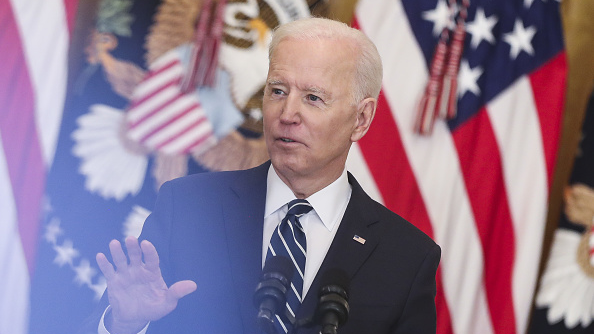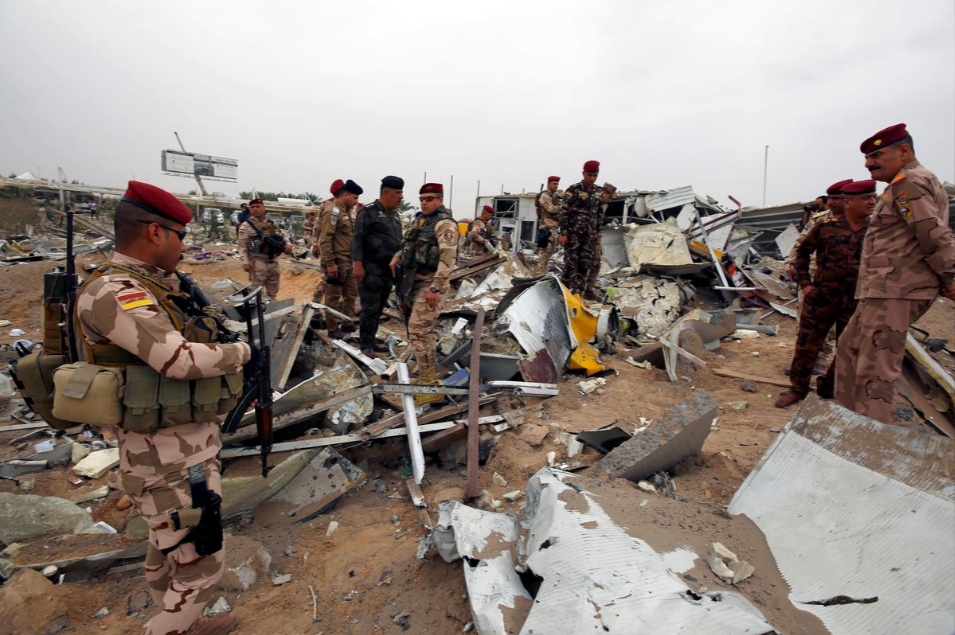
U.S. President Joe Biden. /Getty
U.S. President Joe Biden. /Getty
Editor's note: Bobby Naderi is a London-based journalist, guest contributor in print, radio and television, and documentary filmmaker. The article reflects the author's opinions, and not necessarily the views of CGTN.
Now that U.S. President Joe Biden and Iraqi Prime Minister Mustafa al-Kadhimi have sealed an agreement formally ending the U.S. combat mission in Iraq by the end of 2021, Washington should do the next best thing as it also inevitably did in Afghanistan: follow its better instincts by withdrawing all occupying troops, including those it insists must stay to "operate there in an advisory role."
Yes, this might do lasting damage to the American pride, but the "Empire of Chaos" has no one to blame but itself for this colonial folly. The U.S. failed to win the war on terror with thousands of troops. It is not going to defeat a stronger adversary with troops in a futile advisory role either. In reality, it will be nothing more than a continuation of the ineffectual status quo. The political and security situation in Iraq will almost certainly deteriorate. And the signs are all over the place.
A quiet occupier?
The U.S. has no plan to withdraw all its troops stationed in Iraq and at bases across the border in Syria. The beltway in Washington has already set the stage for eternal occupation of the region to maintain the status quo.
It's about achieving full dominance, oil reserves, the military-industrial complex and the empire of bases. The colonial design is not to be small, nor will it ever be free of combat missions. It will always prioritize air war and chaos, as well as direct military confrontation and logistical support.
What's more, Iraq will remain a trying ground for drone strikes. After 18 years of military intervention, it is inescapably clear that the Pentagon cannot bomb Iraq into American-style "democracy" or drone away the militia groups. There is no reason to think with some U.S. troops "in an advisory role" it would be any different. The evidence is scant.
Baghdad cannot depend on Washington to deal with its internal problems either, including reconstruction efforts. Peace and security can only come once all American forces are gone. It's a lie that the people of Iraq want further U.S. meddling and military presence. In order to come to a real solution, Iraqi leaders, including lawmakers, have made clear that they want to see America's bulletproof vest-clad soldiers out of their country.

An under-construction civilian airport which, according Iraqi religious authorities, was hit by U.S. air strikes, Kerbala, Iraq, March 13, 2020. /Reuters
An under-construction civilian airport which, according Iraqi religious authorities, was hit by U.S. air strikes, Kerbala, Iraq, March 13, 2020. /Reuters
Full withdrawal makes sense for the U.S. as well. The endless insanity is a needless drain on U.S. defense resources and public welfare amid the coronavirus pandemic. It constantly risks escalation and serves no vital national interests at all. A prolonged military presence won't make the American people safer, though it will certainly make Iraqis less safe, both by distorting their national dialogue and causing further delays in reconstruction projects and plans.
While Baghdad says over $100 billion is needed to rebuild the country, in Washington where failure is the new success story, the political class is only willing to offer financial packages in the form of loans, loan guarantees and insurance funds. Keep in mind that under international law, the U.S. is required to show its desire in practice to help rebuild Iraq by providing greater financial aid than other countries.
Uncalled-for errand
To be absolutely clear, the people of Iraq don't need U.S. military assistance to deal with their internal problems with all those military bases, closed military zones, and preventive over-the-horizon airstrikes. Thanks to the U.S.-led invasion of 2003 that destroyed countless hopes and lives, no one trusts the open sky or any street near to the gates of U.S. military bases and airport runways.
In the truest sense imaginable, the U.S. has no business wielding power over anything or anyone in Iraq, certainly not over its government and military. Washington's words and actions show that the U.S. is either deeply untrustworthy of partnership in the battle against terrorism or terrifyingly opportunistic in reconstruction efforts.
Few observers and critics would argue that America's combat mission in Iraq and insistence to "deal with Da'esh in an advisory role" until the end of time is both a symptom of the deep crises that have been cleaving Iraq and the region for 18 years in the name of "liberating" peoples and spreading "democracy" and a catalyst magnifying those crises in the future.
What conceivable national interest is at stake in Iraq that demands a continued investment of American blood and treasure? Who said the U.S. is still the reigning empire on the planet? If there is any single place in the Middle East where the U.S. might still be called for to help deal with an unexpected situation, it is not Iraq.
(If you want to contribute and have specific expertise, please contact us at opinions@cgtn.com.)

